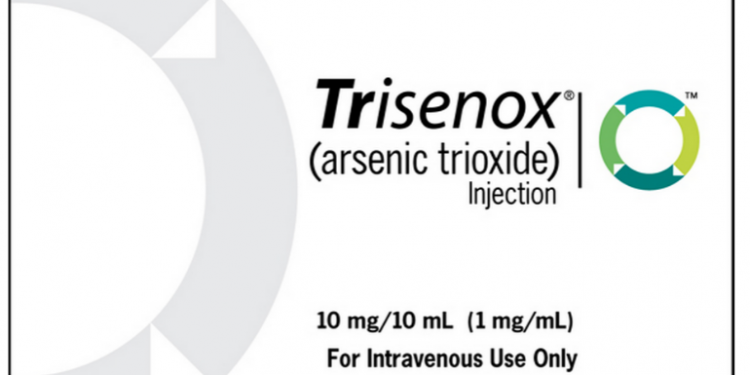The FINANCIAL — Teva Pharmaceutical Industries Ltd. announced on September 12 the U.S. Food and Drug Administration (FDA) has accepted for review the company’s supplemental New Drug Application (sNDA) for the use of TRISENOX (arsenic trioxide) injection in combination with all-trans retinoic acid (ATRA) for induction of remission and consolidation in patients with newly diagnosed low or intermediate risk acute promyelocytic leukemia (APL) whose APL is characterized by the presence of the t(15;17) translocation or PML/RAR-alpha gene expression.
Currently, TRISENOX is indicated for induction of remission and consolidation in patients with acute promyelocytic leukemia (APL) who are refractory to, or have relapsed from, retinoid and anthracycline chemotherapy, and whose APL is characterized by the presence of the t(15;17) translocation or PML/RAR-alpha gene expression, according to Teva.
“With over 15 years of clinical experience, TRISENOX is an important treatment option for APL patients,” said Paul Rittman, Senior Vice President and General Manager, Teva Oncology. “Teva is committed to providing solutions that advance cancer care. We are very pleased that the FDA has accepted the sNDA for priority review as it brings us one step closer to expanding the label for TRISENOX to include use in combination with ATRA for patients with newly diagnosed low to intermediate risk APL.”
The FDA has accepted the sNDA for priority review with regulatory action expected in the first quarter of 2018. FDA grants priority review to applications for drugs or biologics intended to treat serious conditions and address unmet medical needs. The sNDA filing includes data from published scientific literature and a review of Teva’s global safety database for arsenic trioxide.

































Discussion about this post